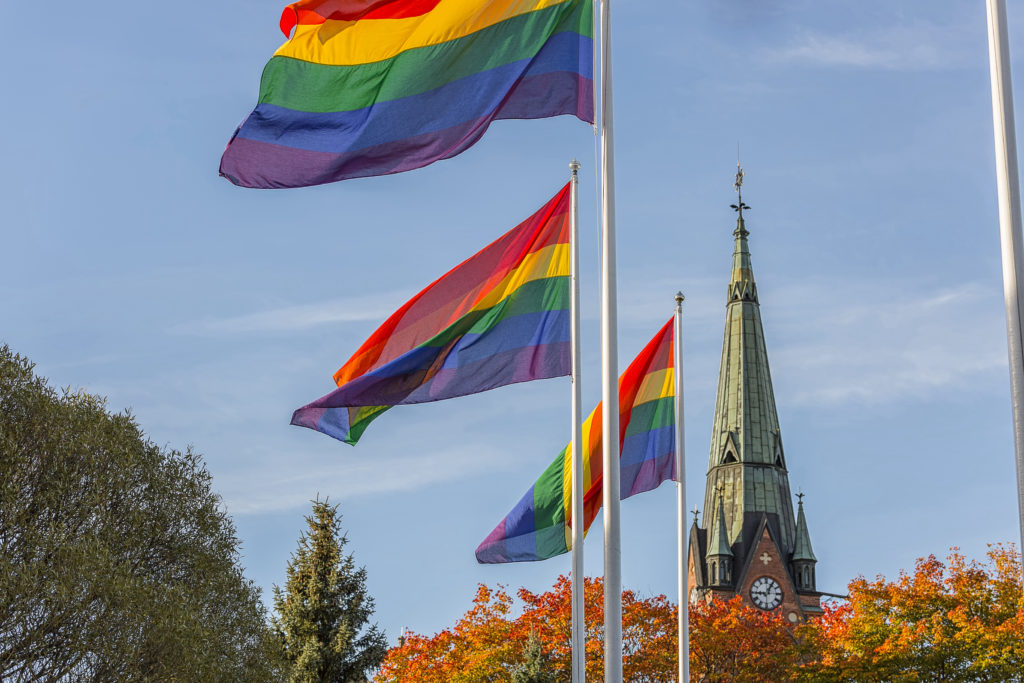When it comes to the gender debate, it’s a “mixed up, muddled up, shook up world,” as the song goes.
A new Washington Post-KFF poll reported May 5 that Americans are not yet on board with the trans movement that has exploded in the past several years, but they are trying to negotiate its implications.
The pollsters found that 57% of Americans still say a person’s gender is determined at birth, but 43% don’t. A majority of young adults, viewed as generally more accepting, also say gender is determined at birth.
A majority of Americans support laws prohibiting discrimination against trans people, but they also don’t believe trans women and girls should be able to compete in sports with other women and girls.
And when it comes to the controversial topic of youth and teens suffering from gender dysphoria, Americans support “gender-affirming counseling” but not hormonal or surgical interventions.
The polling arrives in a political climate that is increasingly polarized. There are an estimated 400 bills in blue and red state legislatures coming from all sides on such trans issues such as “gender affirming care” for young people, sports competitions, and what kind of discussions can take place in schools.
All of this comes at a time when the Church is slowly proclaiming its own teaching on gender theory and its implications. While seeking to be both compassionate and consistent, it is not clear how well known or understood the Church’s concerns are among Catholics or the general public.
A document released last March by the doctrinal committee of the U.S. Bishops’ Conference lays out key principles, stressing “the fundamental order of the human person as an intrinsic unity of body and soul, with a body that is sexually differentiated.”
Based on this body/soul unity and certain principles of Catholic medical ethics, it concluded that surgical, chemical, or other interventions that aim “to exchange” a person’s “sex characteristics” for those of the opposite sex “are not morally justified.” Catholic health care services must not perform such interventions, the bishops taught, but at the same time “must employ appropriate resources to mitigate the suffering of those who struggle with gender incongruence.”
Individual bishops around the country have also released statements addressing gender issues. Most recently, Archbishop Paul Coakley of Oklahoma City, who sought to address pastoral care concerns even as he reinforced traditional Church teaching, wrote, “What tremendous suffering it must be to feel a lack of congruity between one’s sex and gender!” He added, “We must tread lightly and with great compassion as we seek truth related to situations filled with pain.”
The May 5 Post story quoted those who hoped support for trans people will grow, as it did for gays and gay marriage, over time.
However, there are factors that suggest this may be a different issue less easily resolved.
Unlike the issue of homosexuality, there is a deliberate fluidity regarding gender definitions that make it hard for most people to grasp with any confidence. It feels radically subjective.
Likewise, efforts to sanitize the language of traditional gender phrases with new ones such as “pregnant people” and “menstruating people” often backfire, feeling more Orwellian than enlightened.
Thoughtful critiques such as Abigail Favale’s “The Genesis of Gender” (Ignatius Press, $17.95) need to be taken seriously. Favale provides historical context, scientific research and a Christian anthropology while at the same time not ridiculing her intellectual opponents or denigrating very real concerns and traumas. Efforts to suppress such debate through intimidation or ad hominem attacks suggest this is more about ideology than science.
European countries are showing growing concern over the impact of hormonal and surgical treatment on young people. The long-term implications of cross-sex hormones and puberty blockers is a massive social and biological experiment without knowing all the risks, critics say. What is clear is that such radical steps mean a lifetime of medical treatment for those who undergo it.
Finally, there are an increasing number of voices from the gay and even trans communities that are questioning the current push for medical intervention, especially among the young. Corinna Cohn, an advocate who now identifies as a woman, writing in the Washington Post, said of her surgery at age 19: “From [that day on] I became a medical patient and will remain one for the rest of my life.”
“I was not old enough to make that decision,” she said, choosing “an irreversible change before I’d even begun to understand my sexuality.” Cohn suggests her gender dysphoria stemmed more from homosexual desires she could not address at the time.
What the next decade will look like in terms of the law, public opinion, or politics is anyone’s guess.
For the Church, the moment is fraught with risk. If it cannot communicate its concerns — for the families involved, for society, and for our understanding of our own being — with both compassion and intellectual credibility, we will have failed both our own people and society.

